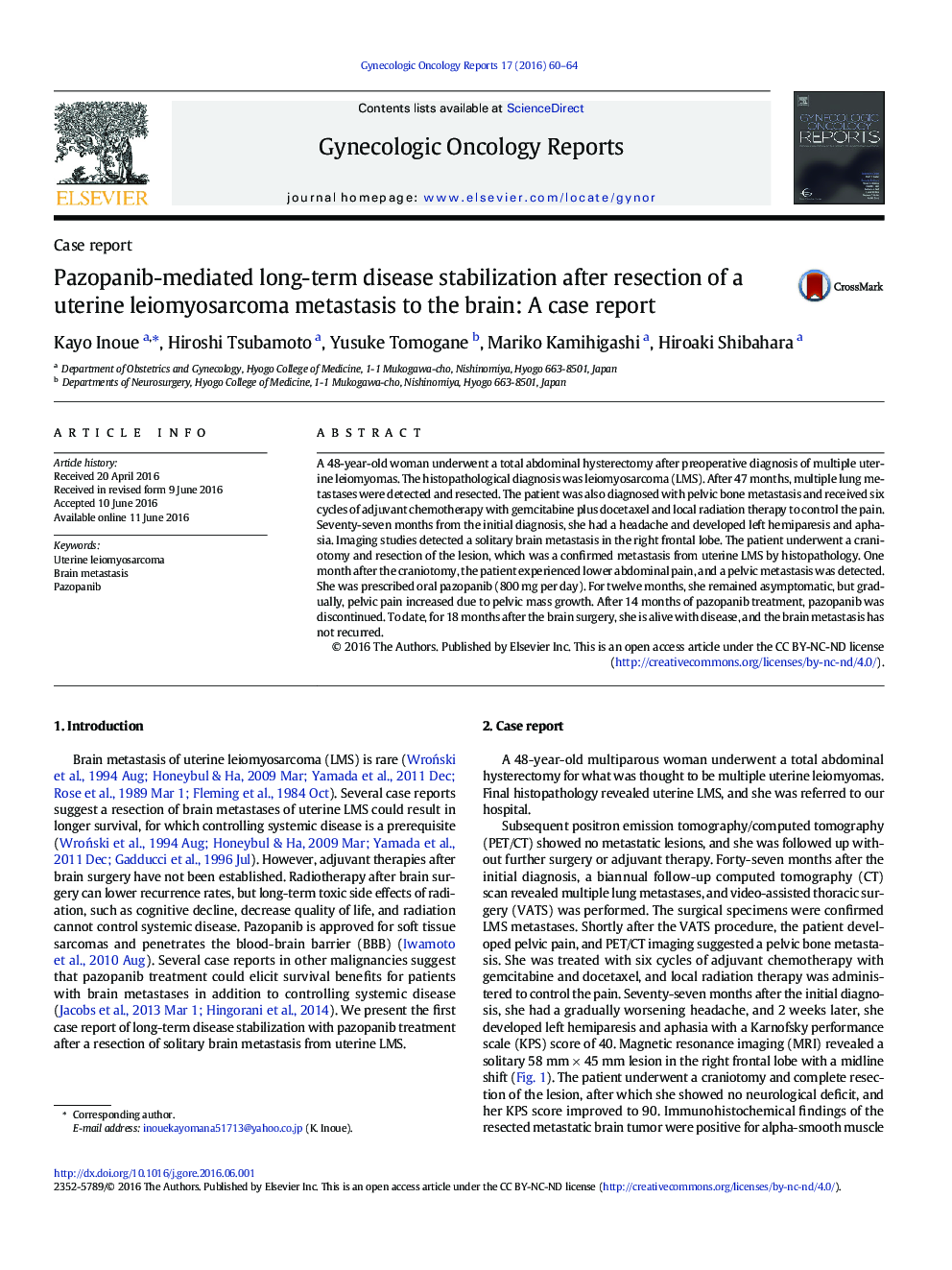| Article ID | Journal | Published Year | Pages | File Type |
|---|---|---|---|---|
| 3948829 | Gynecologic Oncology Reports | 2016 | 5 Pages |
•Pazopanib might benefit patients with uterine leiomyosarcoma brain metastasis.•Pazopanib may control uterine leiomyosarcoma brain metastasis and systemic disease.•Long-term disease stabilization was gained after pazopanib treatment.
A 48-year-old woman underwent a total abdominal hysterectomy after preoperative diagnosis of multiple uterine leiomyomas. The histopathological diagnosis was leiomyosarcoma (LMS). After 47 months, multiple lung metastases were detected and resected. The patient was also diagnosed with pelvic bone metastasis and received six cycles of adjuvant chemotherapy with gemcitabine plus docetaxel and local radiation therapy to control the pain. Seventy-seven months from the initial diagnosis, she had a headache and developed left hemiparesis and aphasia. Imaging studies detected a solitary brain metastasis in the right frontal lobe. The patient underwent a craniotomy and resection of the lesion, which was a confirmed metastasis from uterine LMS by histopathology. One month after the craniotomy, the patient experienced lower abdominal pain, and a pelvic metastasis was detected. She was prescribed oral pazopanib (800 mg per day). For twelve months, she remained asymptomatic, but gradually, pelvic pain increased due to pelvic mass growth. After 14 months of pazopanib treatment, pazopanib was discontinued. To date, for 18 months after the brain surgery, she is alive with disease, and the brain metastasis has not recurred.
